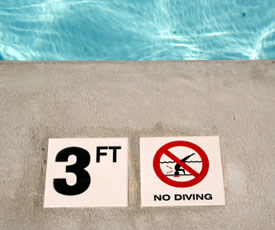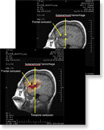Recreation and Sports Accidents
Keeping Massachusetts Athletes and Children Safe
Parents who enroll their children in recreation and sports programs have a right to expect that trained instructors and staff will teach their kids the skills necessary to play a sport well and safely, that their kids will be monitored and spotted during practices, games and meets, and that the equipment and facilities will be in good condition.
Every sport and exercise has some risk of injury, but children should not be placed at increased risk of injury:
- Inadequate staffing
- Deficient instruction of staff or participants
- Overcrowding
- Lack of security
- Broken equipment
- Unmaintained gyms, courts or fields
- Inadequate or incorrect signage or warnings
- Lack of emergency medical care, equipment or procedures
Similarly, athletes have the right to expect that the indoor and outdoor facilities will be in good repair and safe, that their equipment will function as intended, and that their helmets, masks, guards and pads will provide them with as much protection from injury as possible, and will not cause them injury or make their injuries worse.
Recovering Damages Due to Recreation and Sports Accidents
Many facilities have medical payments insurance coverage, but we can prosecute cases for broader damages including:
- Loss of earning capacity now and in the future
- Medical bills for necessary treatment and medicine
- Rehabilitation costs
- Compensation for physical and emotional pain and suffering
- Compensation for a spouse and children for injury to their relationship with the injured athlete
Statute of Limitations.
Generally, Massachusetts allows three years for you to file a lawsuit for injuries sustained in a recreation or sports accident, but the facts of your particular case may result in less time or special notice requirements. Due to the time necessary to properly investigate a case before filing suit, and the need to preserve evidence, you should retain an attorney immediately upon suspecting the basis for a negligence claim.
How We Use Evidence to Win Recreation and Sports Accident Cases
From the inception of a case, we consider the types of "demonstrative evidence" that will bring alive key pieces of evidence and help a jury understand your case:
- Videotapes showing the actual accident sequence or accident reenactments
- Still photography, sometimes taken from videotapes of the accident sequence
- Composite photographs of sports complexes, gymnasia, and recreational facilities
- Digitally enhanced architectural blueprints that focus on areas where an accident happened
- Digitally enhanced photographs showing accident prevention equipment that should have been used, such as protective mats and signage
- Vintage sports memorabilia, advertising and literature to show longstanding knowledge of the risk of injury, availability of protective equipment, and proper coaching techniques
- Instructional videotapes to show knowledge of the risk of injury and proper coaching and spotting practices
We also use digital technology to create “demonstrative evidence” to explain our client’s injuries and rehabilitation:
- Color enhanced CT scans, MRIs or x-rays that show our client’s injuries
- Case specific medical illustrations showing pertinent anatomy or steps in a surgical procedure
- Medical calendars, storyboards and timelines summarizing our client’s medical treatment
Results in Recreation and Sports Accident Cases
We have over 20 years experience obtaining justice for our clients in recreation and sports accident cases. We have collected millions of dollars for our clients over the years.

Learn How Evidence Wins Cases
A personal injury case can hinge on a single piece of evidence, one key witness, or a seemingly minor detail that is easily overlooked. Read More

